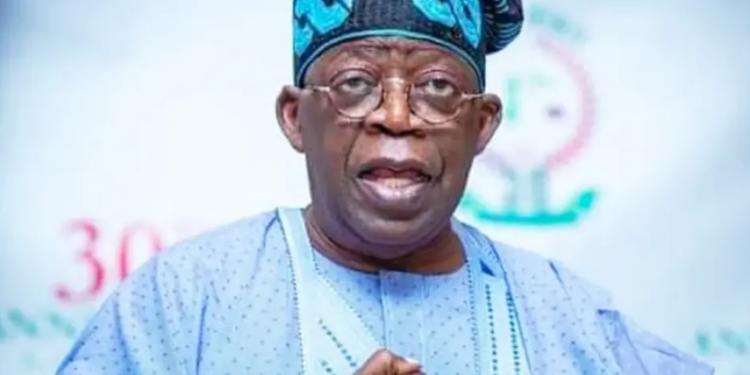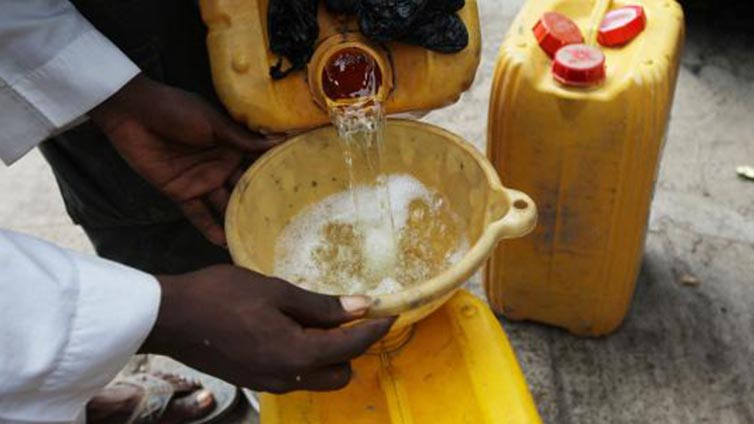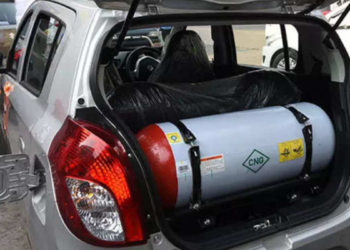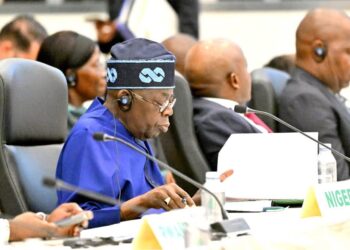- President Bola Ahmed Tinubu plans to address fuel subsidy removal burdens by implementing compressed natural gas (CNG) buses in states and local governments.
- An investment of N100 billion will be made between July 2023 and March to acquire 3000 units of 20-seater CNG-fueled buses, distributed to major transportation companies based on travel intensity per capita.
- Participating transport companies can access credit at 9% per annum with a 60-month repayment period.
On Monday, July 31, President Bola Ahmed Tinubu addressed the country and announced that he is targeting states and local governments to roll out compressed natural gas (CNG) buses as a solution to ease the burdens created by the removal of fuel subsidies.
He stated that his administration had made a provision to invest N100 billion between July 2023 and March to acquire 3000 units of 20-seater CNG-fueled buses.
According to him, the buses will be shared with major transportation companies in the states using the intensity of travel per capita.
He also said participating transport companies will be able to access credit under this facility at 9% per annum with 60 months repayment period.
In a bid to understand the viability of this plan, Nairametrics got in touch with several experts in the Nigerian energy industry and there were varying viewpoints expressed.
However, it was clear that there are missing links in the president’s plan.
Felix Ekundayo, the President of the Nigeria Liquefied Petroleum Gas Association (NLPGA) told Nairametrics that the buses mentioned in the president’s speech would fall under the larger category of vehicles (vans and lorries).
He said that given the higher horsepower outboard, the most viable fuel would be natural gas in any form, including CNG.
He said:
- “The challenge, however, is that CNG is not available across the country, and starts to become more of a problem as you get to the North. Liquefied Natural Gas (LNG) would be better suited, but there is insufficient supply of that presently.
- “The NLPGA and the Nigerian Gas Association (NGA) position is that Nigerians should be offered a mix or selection of fuels from which to choose for transportation.
- “In some areas, you may be able to access all these fuels (LNG, CNG, LPG); in other areas, you may only be able to access one or two.
- “Nonetheless, the options should be there, and the infrastructure should be in place. Infrastructure is now the second level of challenge: how do you get each fuel to the appropriate location at the appropriate price point?
- “What are the regulatory impediments that stop a rapid rollout of the government’s intention, or initiative? In our view, if the impact of the petrol subsidy removal is to be applied, then it should not be applied to just those that are travelling on buses, but also to those who make shorter journeys.
- “Distances can also benefit from this intervention. We also contain that the rate of the rollout of conversion of tricycles would be faster than the procurement process for these bosses to have been announced.
- “So, whilst commending the CNG bus initiative, we also feel that there is additional potential for mass conversion of tricycles.”
Mr. Ekundayo mentioned that the use of petrol generators for both business and household purposes is prevalent among almost everybody. Moreover, there has been a noticeable increase in demand for conversion kits for these petrol generators in recent times.
Consequently, a substantial number of individuals could benefit directly from assistance with the conversion of these generators.
This assistance would require only a fraction of the additional expenditure that is being proposed.
Meanwhile, Dan Kunle, an Energy Analyst hailed Tinubu’s CNG plan. He told Nairametrics that the plan is brilliant, pragmatic and a great leadership response to the anxieties of Nigerians. According to him, the President has shown to the Nigerian people that He understands their pains.
He said:
- “All the interventions and financial instruments are good enough in the short term of six to eight months. Mr. President has shown that we have limited options in this short time.
- “So, to speak to the CNG vehicles, yes, they are good as they are coming new. It will encourage us to increase gas production and utilization locally.
- “It will also help Nigeria to start her decarbonization agenda towards a greener economy. Finally, since 1970, this is the first President that is ready to bail the cat.
- “No serious decisions, except to go to the Civil War in 1967, have been as profound as this fuel subsidy removal. We needed to cut the cancer and it has been done. I look forward to an accelerated formation of a strong Economic Management Team.”
Kelvin Emmanuel, the Chief Executive Officer of Dairy Hills told Nairametrics that the CNG plan will not work without the supporting infrastructure. For him, the plan has two major holes; the lack of CNG infrastructure in the country as well as the lack of structure for the allocation of CNG buses.
He said:
- “I think the allocation of CNG buses should be done with proper structure, the government can replicate the BRT bus model in Lagos state, if those buses are allocated without a structure, the transporters will turn it into their personal business and the goal of reaching those bearing this burden will be defeated.
- “On the other hand, how will a CNG-based transport system be achieved if there is no supporting infrastructure for it? The government should avoid making kneejerk reaction policies to please a few people.
- “Setting up the needed CNG infrastructure across the country will take time, it is a process, and it seems we do not have the patience to go through the process. Do we have enough mother–daughter CNG stations across the country?
- “Where is the infrastructure to execute this CNG plan?”
Kayode Oluwadare, a Natural Gas Analyst told Nairametrics that countries like Brazil, Iran and Pakistan that have established the CNG-based transport system in their countries, set up the infrastructure first before implementing the policy because it is the infrastructure that drives the demand for CNG.
He said:
- “Without the infrastructure, the aim is defeated. It baffles me that the federal government continues to wax lyrical about the deployment of thousands of CNG-fueled vehicles without giving similar publicity to the more important issues of natural gas delivery, compression and refilling infrastructures, assuming there is a strategy around that.
- “Without the latter, importing or locally manufacturing thousands of CNG buses is another effort in futility. Simply put, these plans without the supporting infrastructure as earlier mentioned will not lead to a positive result.
- “To achieve the CNG plan, we need a mother station connected to gas pipelines to access CNG or a daughter station that is connected to a compressor station and other infrastructure to access CNG. In Edo state, NIPCO Plc can provide CNG because there are accessible gas pipelines in the state.
- “But what about other states? Rather than investing in CNG buses, let the government build the infrastructure and let people get the vehicles and do their own conversion (which can then be subsidized by the government).
- “If not, the whole thing is an effort in futility.”





















